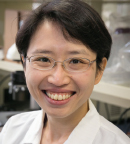Chimeric antigen receptor (CAR) T-cell therapy known as TruUCAR GC027 may prove to be useful in the treatment of adult patients with relapsed or refractory T-cell acute lymphoblastic leukemia (T-ALL) and potentially other hematologic malignancies. Preliminary results in a small number of patients presented at the 2020 Virtual Meeting of the American Association for Cancer Research (AACR) showed encouraging early response rates and manageable safety, although some experts said the toxicity was concerning and more data are needed.1
All five study patients achieved a complete remission with or without complete blood cell count recovery at the first evaluation. Four (80%) achieved a minimal residual disease (MRD)-negative complete remission at 1 month.
The process of manufacturing conventional CAR T-cell therapy is based on taking each patient’s own T cells in a laborious process that can take up to several weeks, but certain types of leukemias require immediate therapy. Having an “off-the-shelf” CAR T-cell product overcomes many of the limitations of this process and would make this type of cellular therapy readily available and more widely applicable.
TruUCAR GC027 is notable for its design, using CRISPR gene editing to avoid graft-vs-host disease and immune rejection without using immunosuppressive drugs. A news release from Gracell, the company that manufactures this new product, stated: “This platform technology can also be implemented for other targets of hematologic malignancies. Patients enrolled in the first-in-human study were not human leukocyte antigen–matched, and no one accepted postinfusion hematopoietic stem cell transplantation [HSCT].”

“With a single infusion of GC027, 80% of patients had robust T-cell expansion and achieved a persistent MRD-based complete response….”— Xinxin Wang, PhD
Tweet this quote
“With a single infusion of GC027, 80% of patients had robust T-cell expansion and achieved a persistent MRD-based complete response without using any biologics as part of the preconditioning therapy or bridging to HSCT. As the first-in-human universal CAR T-cell therapy for adult relapsed/refractory T-cell ALL, GC027 has demonstrated superior clinical efficacy and induced deep responses in patients with an acceptable safety profile. The trial enrollment is ongoing,” said lead author Xinxin Wang, PhD, Group Leader for TruUCAR development at Gracell Biotechnologies, Shanghai.
“With the promising results of this prospective study of TruUCAR GC027, further evaluation is warranted,” Dr. Wang commented.
Explaining the manufacturing process forTruUCAR GC027, she said: “An anti-CD7 CAR was introduced by lentivirus, which enables rapid elimination of T-cell ALL. Since it is an allogeneic product to avoid graft-vs-host disease, which can lead to lethal organ damage, the expression of T-cell receptors was ablated by genomic disruption of [T-cell receptor] alpha chain locus using the CRISPR/Cas9 system. CD7 locus was also disrupted to avoid fratricide during CAR T-cell production.”
T-cell ALL is a difficult type of leukemia to treat. The outcome of relapsed/refractory T-cell ALL is usually poor, with limited treatment options, and the disease represents an unmet need.
Study Details
The investigator-initiated trial prospectively treated five adult patients aged 19 to 38 years with relapsed or refractory disease after receiving a median of five prior treatments. The median tumor burden at baseline was 38.2% of blasts. No patient had undergone prior allogeneic HSCT. Eligibility criteria include positivity for CD7 expression by flow cytometry or immunohistochemistry, estimated survival of more than 3 months,
Eastern Cooperative Oncology Group performance status ≤ 2, and suitability for HSCT. Exclusions were active infection, major organ dysfunction, or extramedullary or central nervous system involvement.
KEY POINTS
- TruUCAR is an off-the-shelf CAR T-cell product that can be readily available to all patients requiring this therapy.
- This product overcomes many of the limitations of conventional CAR T-cell therapy made from each patient’s T cells.
- High rates of toxicity were associated with this agent in a small first-in-human trial.
- More study is needed in larger groups of patients to characterize its safety, efficacy, and durability of response.
Patients received 6 days of lymphodepletion chemotherapy followed by a single infusion of TruUCAR GC027 at one of three dose levels and followed for incidence of adverse events, response to therapy, and CAR T-cell expansion. Dose levels were: 0.6 × 107 cells/kg (n = 1), 1 × 107 cells/kg (n = 3), and 1.5 × 107 cells/kg (n = 1).
Cellular expansion was observed as early as day 5 and continued for 2 weeks. There did not appear to be a correlation between tumor burden and peak cell expansion.
All five patients tolerated the single infusion of TruUCAR GC027, with no neurotoxicity events or acute graft-vs-host disease. However, all five developed cytokine-release syndrome (4 grade 3, 1 grade 4). All cases of cytokine-release syndrome resolved with treatment and supportive care. One patient developed prolonged cytopenia and required antifungal therapy.
DISCLOSURE: Dr. Wang is an employee of Gracell Biotechnologies. The study was sponsored by Gracell.
REFERENCE
1. Wang X, Li S, Gao L, et al: Clinical safety and efficacy study of TruUCAR GC027: The first-in-human universal CAR-T therapy for adult relapsed/refractory T-cell acute lymphoblastic leukemia. 2020 AACR Virtual Annual Meeting. Abstract CT052. Presented April 28, 2020.


